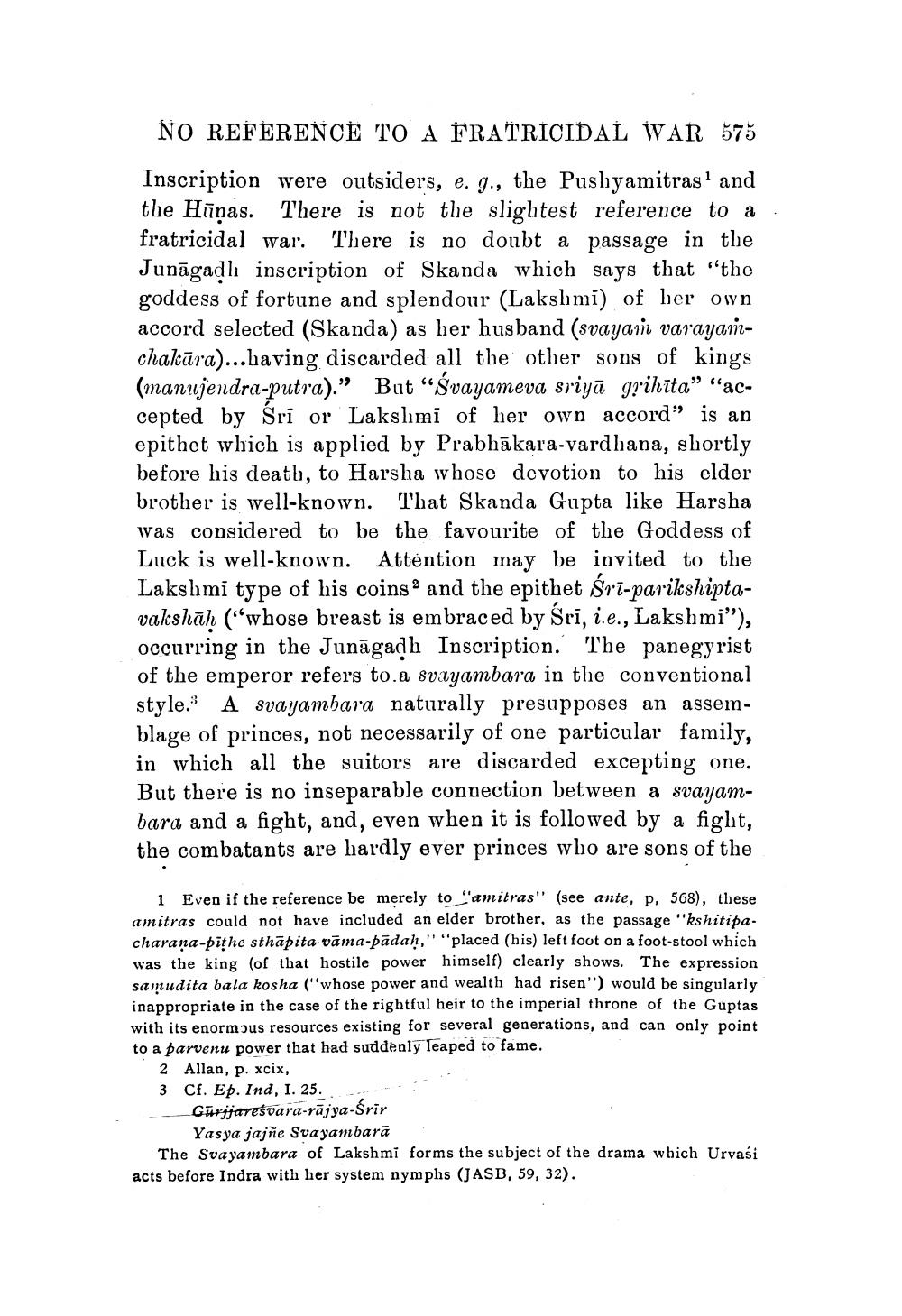________________
NO REFERENCE TO A FRATRICIDAL WAR 575
Inscription were outsiders, e. g., the Pushyamitras' and the Hīņas. There is not the slightest reference to a fratricidal war. There is no doubt a passage in the Junāgadlı inscription of Skanda which says that "the goddess of fortune and splendour (Lakshmi) of her own accord selected (Skanda) as her husband (svayain varayanchaltāra)...having discarded all the other sons of kings (manujendra-putra).” But "Svayameva sriyā grihīta" "accepted by Sri or Lakshmi of her own accord” is an epithet which is applied by Prabhākara-vardhana, shortly before his death, to Harsha whose devotion to his elder brother is well-known. That Skanda Gupta like Harsha was considered to be the favourite of the Goddess of Luck is well-known. Attention may be invited to the Lakshmi type of his coins and the epithet Śrī-parikshiptavakshāh (“whose breast is embraced by Śrī, i.e., Lakshmi'), occurring in the Junāgadh Inscription. The panegyrist of the emperor refers to.a svayambara in the conventional style. A svayambara naturally presupposes an assemblage of princes, not necessarily of one particular family, in which all the suitors are discarded excepting one. But there is no inseparable connection between a svayambara and a fight, and, even when it is followed by a fight, the combatants are hardly ever princes who are sons of the
1 Even if the reference be merely to "amitras" (see ante, p, 568), these amitras could not have included an elder brother, as the passage ''kshitipacharana-pithe sthapita vāma-pādah," "placed (his) left foot on a foot-stool which was the king (of that hostile power himself) clearly shows. The expression samudita bala kosha "whose power and wealth had risen'') would be singularly inappropriate in the case of the rightful heir to the imperial throne of the Guptas with its enormous resources existing for several generations, and can only point to a parvenu power that had suddenly leaped to fame.
2 Allan, p. xcix, 3 Cf. Ep. Ind, I. 25. -Gürjjateśvara-rājya-Śrir
Yasya jajne Svayambarā The Svayambara of Lakshmi forms the subject of the drama which Urvasi acts before Indra with her system nymphs (JASB, 59, 32).




